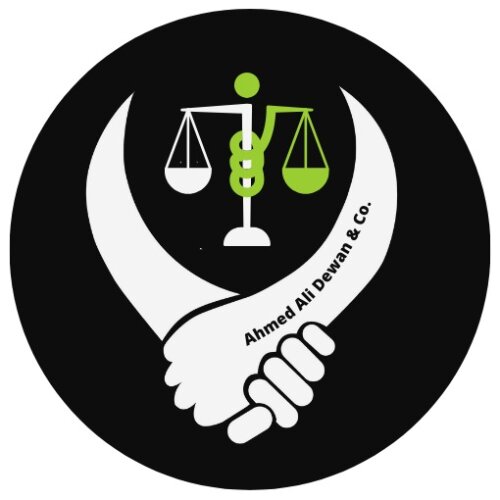Best Family Lawyers in Pakistan
Share your needs with us, get contacted by law firms.
Free. Takes 2 min.
Free Guide to Hiring a Family Lawyer
Or refine your search by selecting a city:
List of the best lawyers in Pakistan
Pakistan Family Legal Questions answered by Lawyers
Browse our 33 legal questions about Family in Pakistan and read the lawyer answers, or ask your own questions for free.
- Wife is very toxic abusive manipulative from 10 years
- Hello, My wife does not allow me to work outside the home. She constantly makes calls, levels false accusations, and blames me for everything. She can involve anyone—her sister, landlords, or anyone she can use—to manipulate or abuse me. If I am away from home for more than an hour,... Read more →
-
Lawyer answer by Azam Ch Law Associates
It depends with age and gender of kids. Incase of male kids you can secure custody if they are about 12 or older but if they are too young you can't take them. Ultimately you are responsible for their growth
Read full answer - Child visiting rights and joint custody case
- Assalam o Alaikum Here we have mutually agreed on separation although I have initiated this and then the both families Punchayat involved and we returned Dowry articles even a single bangle and they assured us they will have no issue regarding visiting my son and they also write this statement... Read more →
-
Lawyer answer by Muhammad Ali Law Associates
In response to above, note that even though both families agreed on separation, dowry was returned and statements were recorded. These things do not create enforceable custody or visitation rights because custody and visitation are always decided by the Guardian...
Read full answer - Khula from an overseas husband
- Aslamoalikum. What is the process or khula and divorce case taken from husband who lives in France... What is the time duration and what is time duration for embassy attestation
-
Lawyer answer by Qadeer Ahmad Siddiqi Law Associates
Wa-Alaikum-Salam. Thank you for your message. If your husband is living in France, you can still obtain khula or divorce in Pakistan through the Family Court in your city. The court issues a decree of khula, which is then sent...
Read full answer
About Family Law in Pakistan
Family law in Pakistan encompasses a range of legal issues related to family and domestic relationships. It includes regulations on marriage, divorce, child custody, inheritance, and domestic violence, among others. The legal framework for family law in Pakistan primarily derives from religious laws, particularly Islamic laws, which govern matters for the majority Muslim population. However, there are provisions for non-Muslims, governed by their respective religious laws. Family laws in Pakistan aim to provide clarity and facilitate fairness in familial relationships and disputes.
Why You May Need a Lawyer
There are several situations where individuals may require legal assistance in family matters in Pakistan:
- Marriage and Divorce: Navigating legal procedures for marriage registrations or obtaining a divorce can be complex, necessitating legal guidance.
- Child Custody and Support: Legal advice is crucial when negotiating custody arrangements or determining child support obligations.
- Inheritance Disputes: Complex issues often arise concerning the distribution of an estate, especially among siblings or extended family members.
- Domestic Violence: Victims of domestic violence may need legal support to secure protection orders or pursue criminal charges.
- Adoption and Guardianship: Legal procedures in adoption and establishing guardianship require thorough understanding and adherence to local laws.
- Alimony and Maintenance: Disputes over financial support require legal intervention to ensure fair outcomes.
Local Laws Overview
Pertinent laws in the realm of family matters in Pakistan include:
- The Muslim Family Laws Ordinance, 1961: Governs marriage, divorce, maintenance, and child custody for Muslims.
- The Christian Marriage Act, 1872: Covers marriage registrations and related matters for the Christian community.
- The Hindu Marriage Act, 2017: Sets out laws pertaining to marriage and divorce among Hindus in Pakistan.
- The Guardians and Wards Act, 1890: Provides a framework for guardianship matters.
- The Family Courts Act, 1964: Establishes family courts and outlines their jurisdiction and procedures.
Frequently Asked Questions
What documents are required for registering a marriage in Pakistan?
Generally, both parties must provide CNIC copies, passport sized photos, and a Nikkah Nama (marriage contract) duly signed by both spouses and witnesses.
How can I initiate a divorce proceeding?
The procedure varies depending on religious law but generally involves filing a notice of divorce (talaq) with local authorities and serving it upon the spouse.
What factors determine child custody in Pakistan?
Court decisions are typically based on the welfare of the child, including stability, education, and the ability of the parent to provide a secure environment.
Is alimony mandatory after divorce?
Alimony or maintenance depends on the circumstances surrounding the divorce, including the financial standing of each spouse and any existing agreements.
How are inheritance issues resolved under Islamic law?
Inheritance for Muslims is distributed based on specific shares predefined under Islamic Shariah Law, which are influenced by the number and nature of survivors.
Can women seek legal protection against domestic violence?
Yes, women can seek protection orders or file criminal charges under the Protection of Women (Criminal Laws Amendment) Act, 2006 and other relevant laws.
What is the procedure for adopting a child in Pakistan?
The legal procedure involves obtaining a guardianship order through the courts, as formal 'adoption' is not recognized under Pakistani law.
Do non-Muslims in Pakistan have different family laws?
Yes, different religious communities have specific laws relevant to their customs and beliefs, including Christians, Hindus, and others.
How can I challenge a family court decision?
Appeals can be filed in higher courts within the stipulated time frame as determined by legal provisions and the nature of the case.
Where can I find public family court records?
Family court records are often confidential. Authorized access is usually provided to the parties involved and their legal representatives.
Additional Resources
For additional assistance and resources, you may consider contacting the following:
- Law & Justice Commission of Pakistan: Provides publications and resources related to legal reforms including family law.
- National Commission on the Status of Women: Can offer guidance on women’s rights issues, including family matters.
- Legal Aid Offices and NGOs: Various NGOs provide legal aid and support to individuals unable to afford private legal counsel.
- Provincial Bar Councils: Offer directories of registered family law practitioners.
Next Steps
If you need legal assistance in family law matters, consider the following steps:
- Identify the specific nature of your legal issue to determine the type of legal expertise required.
- Consult with a qualified family law attorney in your area who is knowledgeable in local legal practices.
- Gather and organize any pertinent documents or evidence related to your case for the initial consultation.
- Explore whether any legal aid services are available if cost is a concern.
- Stay informed about your rights and responsibilities under the law to better navigate legal processes.
Lawzana helps you find the best lawyers and law firms in Pakistan through a curated and pre-screened list of qualified legal professionals. Our platform offers rankings and detailed profiles of attorneys and law firms, allowing you to compare based on practice areas, including Family, experience, and client feedback.
Each profile includes a description of the firm's areas of practice, client reviews, team members and partners, year of establishment, spoken languages, office locations, contact information, social media presence, and any published articles or resources. Most firms on our platform speak English and are experienced in both local and international legal matters.
Get a quote from top-rated law firms in Pakistan — quickly, securely, and without unnecessary hassle.
Disclaimer:
The information provided on this page is for general informational purposes only and does not constitute legal advice. While we strive to ensure the accuracy and relevance of the content, legal information may change over time, and interpretations of the law can vary. You should always consult with a qualified legal professional for advice specific to your situation.
We disclaim all liability for actions taken or not taken based on the content of this page. If you believe any information is incorrect or outdated, please contact us, and we will review and update it where appropriate.
Browse family law firms by service in Pakistan
Pakistan Attorneys in related practice areas.
Browse family law firms by city in Pakistan
Refine your search by selecting a city.

















